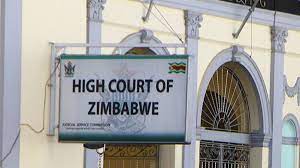CIVIL servants organisations have dragged government to court over “retrogressive labour laws” which they claim are violating their rights to collective bargaining.
A collective bargaining agreement between an employer and a registered trade union contains terms and conditions of employment or any matter of mutual interest concluded between them.
In a High Court application, the Civil Service Employees Association, Amalgamated Rural Teachers Union of Zimbabwe, Zimbabwe Teachers Association, Educators Union of Zimbabwe and Progressive Teachers Union of Zimbabwe argued that the laws have resulted in civil servants being victims of abuse at workplaces.
The unions through their lawyers, Matika, Gwisai and Partners, argued that some provisions of the Public Service Act should be nullified.
“Applicants are applying for a declaratory order in terms of section 85(1) of the Constitution of Zimbabwe. The application seeks to nullify some provisions of SI 141 of 1997, s19(1), s20 and s31(1) of the Public Service Act [Chapter 16:04].
“The mentioned sections are not consistent with provisions of s203(1)(b) and s65(5) of the Constitution of Zimbabwe Amendment (No 20) Act, 2013 which states that the conditions of service of members of the Public Service including their salaries, allowances and other benefits must be determined through a collective bargaining process which resultsin a collective bargaining agreement which process must involve trade unions andemployee associations and organisations,” partly read the application.
The civil servants accused government of disregarding labour rights and unilaterally reducing their salaries without going through the collective bargaining process.
“The government has maintained retrogressive labour laws, completely disregarding labour rights provided for by the 2013 Constitution. The same is happening with the unlawful 40% cap of earnings in foreign currency for employees in parastatals and public entities. This attacks their right to collective bargaining,” the government workers asserted.
They further claimed that unilateralism on fixing conditions of service had led to civil servants being victims of abuse at the workplace.
“In October 2018, for example, the government unilaterally slashed salaries from US$540 to US$30 without going through collective bargaining. Government is now in the habit of introducing and withdrawing allowances willy-nilly, without any consultation whatsoever with workers.
“Teachers even lost legally provided for vacation leave after it was illegally unilaterally altered by the employer,” they said.
The civil servants said the application sought to end authoritarianism in the civil service and create a democratic dispensation in line with section 65(5) of the Constitution.
“Teachers are not being paid for management of Continuous Assessment Learning Activities, they are not paid for invigilation and re-grading remains a challenge. All this is a result of unilateral decisionmaking by the employer. Right to collective bargaining will put an end to this.
“The National Joint Negotiation Council, an entity created from the unconstitutional SI 141 of 1997 is also set to be disbanded,” they further vowed.
The High Court is set to hear the case tomorrow.
Source Newsday










